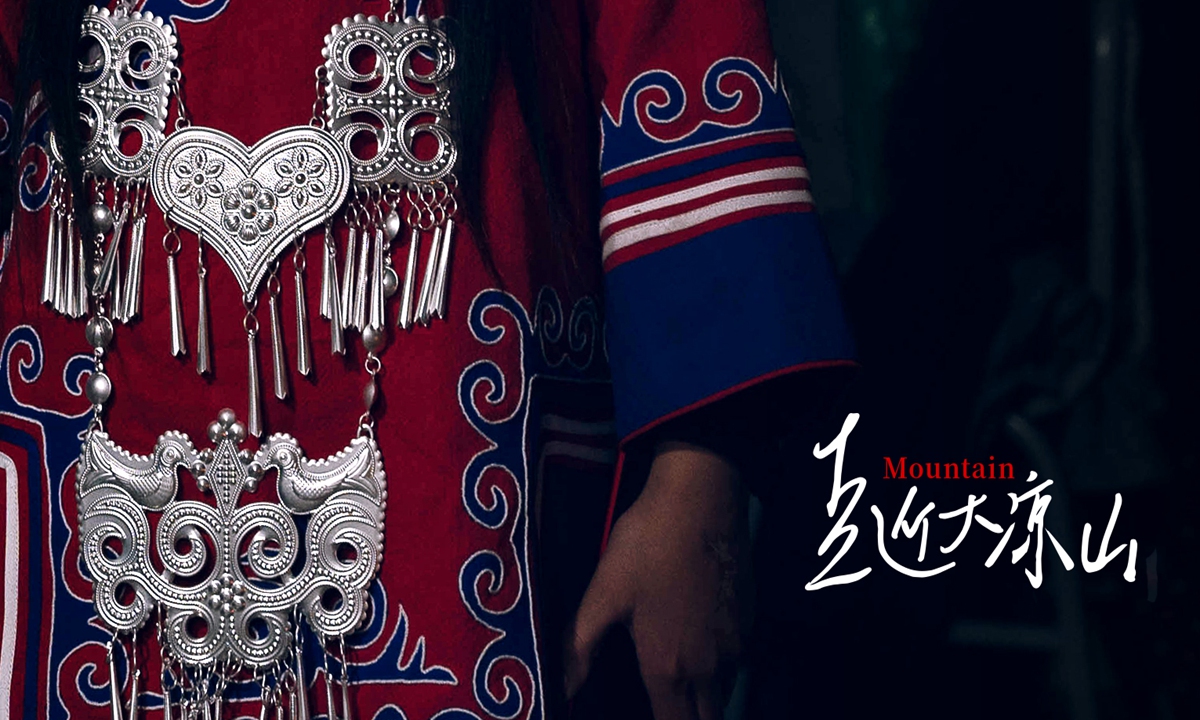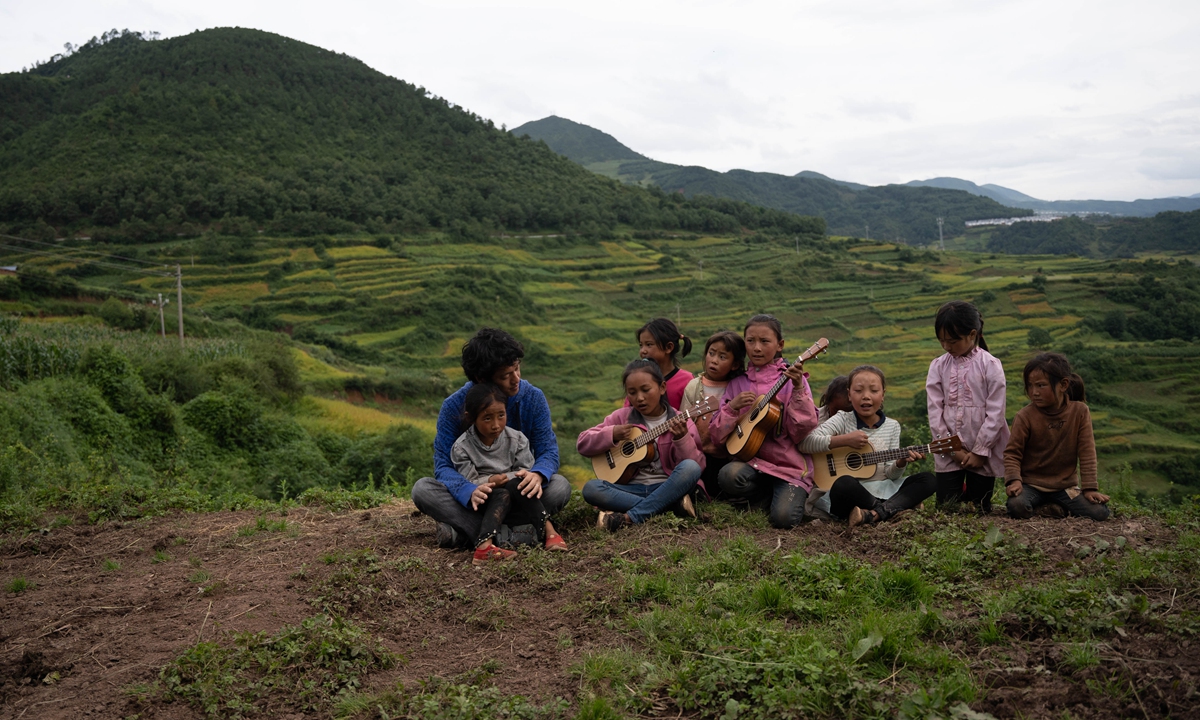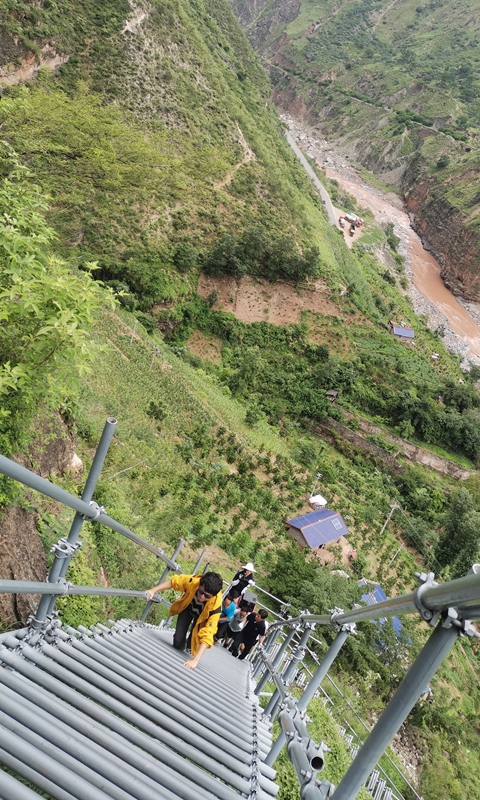Japanese director Ryo Takeuchi finds beauty in ‘one of the poorest corners of China’ in documentary film ‘Mountain’

Promotional material of the documentary film Photo: Courtesy of the producer
To see the real state of China's poor rural areas and the fruits of the country's poverty alleviation efforts, Japanese director Ryo Takeuchi went deep in Liangshan Prefecture, once one of the poorest corners of China, to show the changes that have occurred in a mountainous village there to more people.
The 50-minute documentary film Mountain will be released on April 6, right after the three-day Qingming Festival holiday, through a variety of channels including streaming platforms such as Tencent and iQIYI.
"I am Ryo Takeuchi, a documentary director living in China. This time I have come to a secret place in Southwest China's Sichuan Province as I wanted to see another China that is different from the rapidly developing economy known around the world," the director says at the beginning of the documentary.
The film crew kicked off a 10-day shoot at Daliangshan Village at the end of July 2020, the producer of the documentary told the Global Times on Tuesday.

The director stays with local children. Photo: Courtesy of the producer
Takeuchi took a train to the mountainous area and got off at a "cliff village" that has become famous through numerous media reports. The director overcame acrophobia to climb the steep express iron stairs that were built in 2020.
"The director even sprained his ankle while climbing the stairs," the producer said.

The filming team climb the stairs. Photo: Courtesy of the producer
The filming crew met with staff at a local bank after finally reaching the cliff village. The bank provides financial services to villagers and staff will also climb up steep mountain paths to allow villagers to enjoy banking services at home.
The director also talked about the villagers who moved out of the cliff village with the village secretary.
The village secretary told him that these villagers have lived in a county under the mountain and their houses were provided by the local government.
Their cameras captured a labor training class in the county, where many Yi women dressed in traditional clothing were learning to produce traditional Yi embroidery that can be hailed by modern society.
Takeuchi chatted with some of the women and discovered they were "immigrants" from the nearby cliff village who were provided with fully furnished free housing.
"From a Japanese point of view, some people might think it is unfair to use tax money to provide free housing to some people. But given the huge gap between rich and poor in China, there are limits to self-reliance, and most people are very supportive of the government's poverty alleviation policies," the narrator in the film explains.
The documentary also mentions how the government and some Chinese educational institutions are trying to provide more opportunities to local children to help them leave the mountains, like a soccer school co-established by one education institution and the top Spanish soccer club Real Madrid that aims to send children who show some aptitude for the sport to Spain for further training.
Like children living in big cities in China, local children dream of one day becoming dancers, musicians or actors. However, many of these children had never seen a foreigner until they met the Japanese director.
Some of their parents' views have changed due to poverty relief efforts. In the documentary, they said they want to try to send their children to school and hope they can learn as much as possible so that they can have a better life.
These parents said they are longing for more teachers who can boost their children's school grades to come work at local schools.
"I hope that the people who watch this documentary can go to beautiful Daliangshan. Because I think the key point of getting out of poverty is to get more people to care about this issue so they do what they can," the director says in the documentary.

